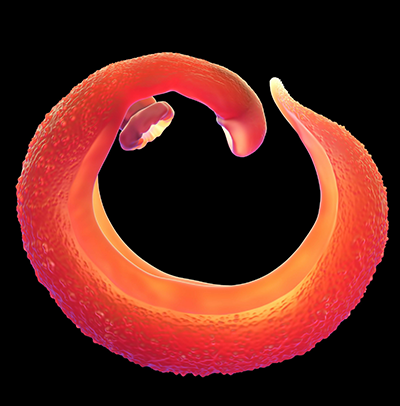UIC researchers discover new treatment approach for deadly parasitic disease
Schistosomiasis affects an estimated 250 million people worldwide
A team of UIC College of Pharmacy scientists along with their collaborators at Rush University, the University of L’Aquila, the University of Grenoble Alpes, and University of Arizona have discovered a novel approach for the treatment of schistosomiasis, which is considered the second most socially and economically devastating parasitic disease after malaria. Caused by a parasitic flatworm (Schistosoma), the disease affects an estimated 250 million people in over 70 countries. Schistosoma infections are a WHO-recognized risk factor for HIV, are a major cause of pulmonary arterial hypertension, and are estimated to cause 200,000 deaths annually.
In search of a new, effective cure Heading link

The only drug currently available to treat schistosomiasis, Praziquantel, has a relatively low cure rate (often less than 50%), doesn’t prevent reinfection, and is ineffective against juvenile parasites. There is also growing evidence that the Schistosoma are evolving resistance to the drug, with little progress in developing new vaccines or drugs.
In a new paper in Nature Communications, the team of scientists outline a promising new treatment that targets a specific enzyme (thioredoxin glutathione reductase) essential for the parasite’s survival inside the human host. The UIC authors include Pavel Petukhov, professor of pharmaceutical sciences, Bikash Dangi, Vamshirishna Gone, Luke N.M. Harding, Dejan S. Nikolic, and Valentina Petukhova.